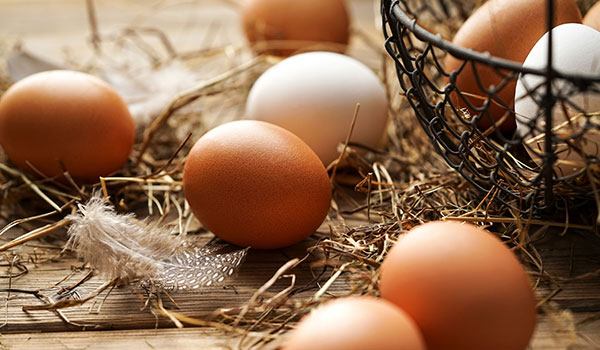Quality in poultry
The poultry industry relies heavily on the production of high-quality eggs and meat. In laying hens and breeders eggshell quality is crucial, as it affects hatchability and the safety of eggs for human consumption. In contrast, while broilers are primarily raised for meat, understanding their skeletal development and health is especially important to produce high quality meat efficiently.
The quality of eggshells is a critical parameter for poultry production, directly impacting egg marketability and overall yield. This review explores the intricate relationship between the quality of bones and the quality of eggshells in laying hens. Notably, the skeletal system's health plays a crucial role in calcium mobilization, a key component in eggshell formation. In broilers proper skeletal growth is essential for supporting the rapid weight gain characteristic of fast growing chickens. Many factors are affecting bone development in broilers, including nutrition, genetics, age, and environmental conditions.
Bone Quality and Its Impact on Eggshell Formation: Bone quality in poultry is often assessed through measures such as bone mineral density (BMD) and strength. In laying hens, the medullary bone serves as a rapid source of calcium for eggshell production during the egg-laying process. Adequate dietary calcium, especially during critical periods of egg formation, is necessary to maintain both bone density and eggshell integrity. A deficiency in nutrients, particularly calcium and phosphorus, can lead to weakened bones, resulting in increased susceptibility to fractures and poor eggshell quality. Studies have shown that layers with strong skeletal systems produce eggs with thicker, more resilient shells, indicating a direct correlation between robust bone health and superior eggshell quality.
Factors for bone and eggshell quality:
Nutrition: Optimal nutrition is critical for maintaining both bone quality and eggshell strength. A diet rich in calcium and phosphorus is essential, as both minerals play pivotal roles in bone creation and maintenance. Furthermore, vitamin D is necessary for efficient calcium absorption. Research indicates that a well-balanced diet can significantly enhance both bone strength and eggshell quality. In contrast, deficiencies can lead to metabolic bone diseases, such as osteoporosis, frequently observed in older laying hens, resulting in thin eggshells and increased mortality rates. For growing animals like broilers also the ratio of calcium and phosphorus is very important. Additionally a good gut health is needed to provide optimal conditions for high absorption rates of minerals. Inadequate levels of these nutrients or low absorption rates can lead to bone disorders such as rickets or osteomalacia, which significantly impact animal welfare and productivity.
Genetics: Genetic selection also influences bone and eggshell characteristics. Breeding programs focused on enhancing bone density and overall skeletal integrity can significantly improve eggshell quality. Genetic markers linked to these traits can assist breeders in developing strains that not only excel in meat production but also maintain strong bones conducive to effective calcium mobilization for eggshell formation in hybrid lines.
Age and Growth Rate: Laying hens are adult birds that not growing anymore. The main goal as a producer is to maintain skeletal quality while producing high amounts of good quality eggs. This is a challenge especially in older birds that need more attention to maintain bone and eggshell integrity. As broilers age, their skeletal systems must adapt to accommodate rapid muscle growth and increased body weight. Growth rates can influence bone quality—faster-growing strains may experience higher risks of skeletal disorders due to the imbalances between muscle development and bone strength. Adjusting dietary formulation accordingly or supplementation of additional nutrients is crucial for maintaining healthy skeletal development.
Environment: Environmental factors, including housing conditions, flock density and health management, significantly impact stress levels in poultry, subsequently affecting bone and eggshell quality. Chronic stress from overcrowding or poor ventilation can lead to reduced feed intake, nutrient absorption, and overall health, which compromises both skeletal and eggshell integrity. Providing optimal housing with adequate space, enrichment, and ventilation can improve welfare and, as a result, enhance the quality of both bones and eggshells.
Conclusion: Egg quality in layers and bone development in broilers are a multifaceted issue that directly influences production efficiency, animal welfare and farmer’s profitability. By focusing on proper nutrition, using specialized genetics, understanding growth patterns, and providing optimal environmental conditions, poultry producers can enhance the skeletal integrity of broilers and laying hens, leading to improved overall performance and profitability. Continued research in this area is essential to develop innovative strategies and products aimed at mitigating the impact of bone-related issues in poultry production.
